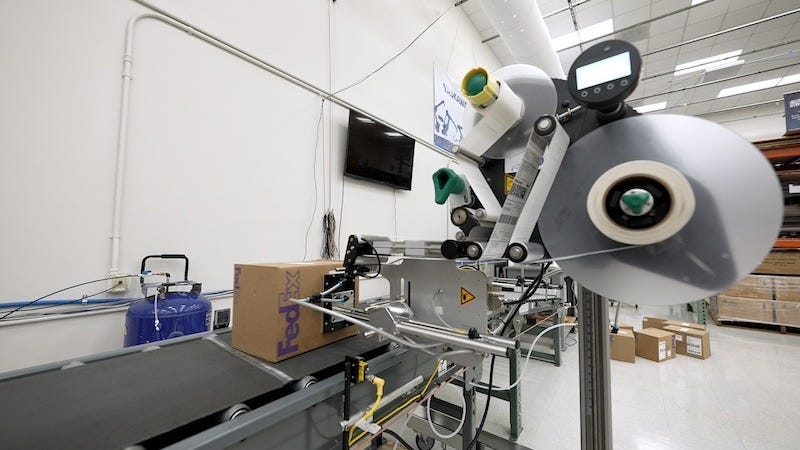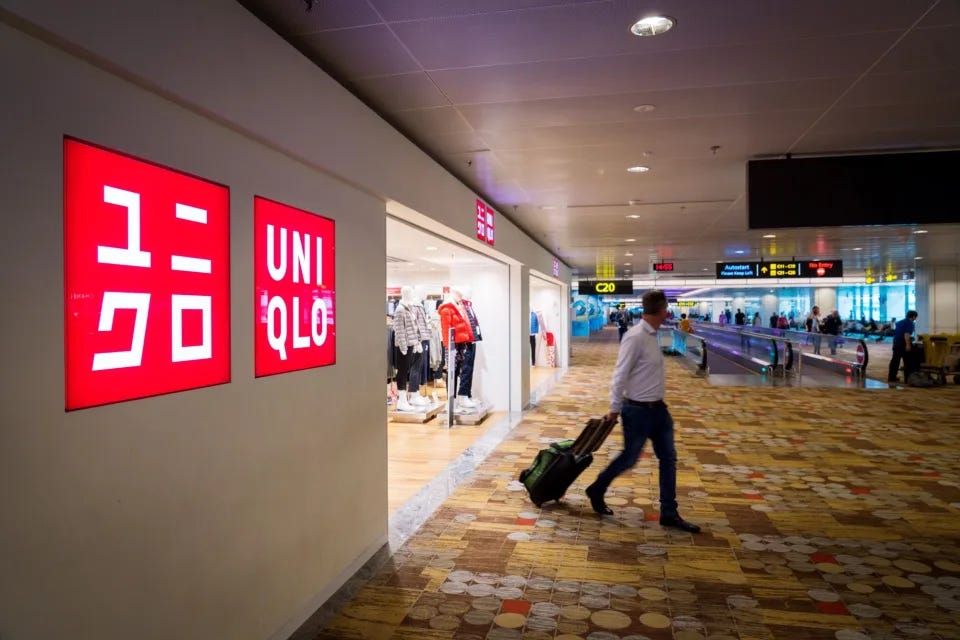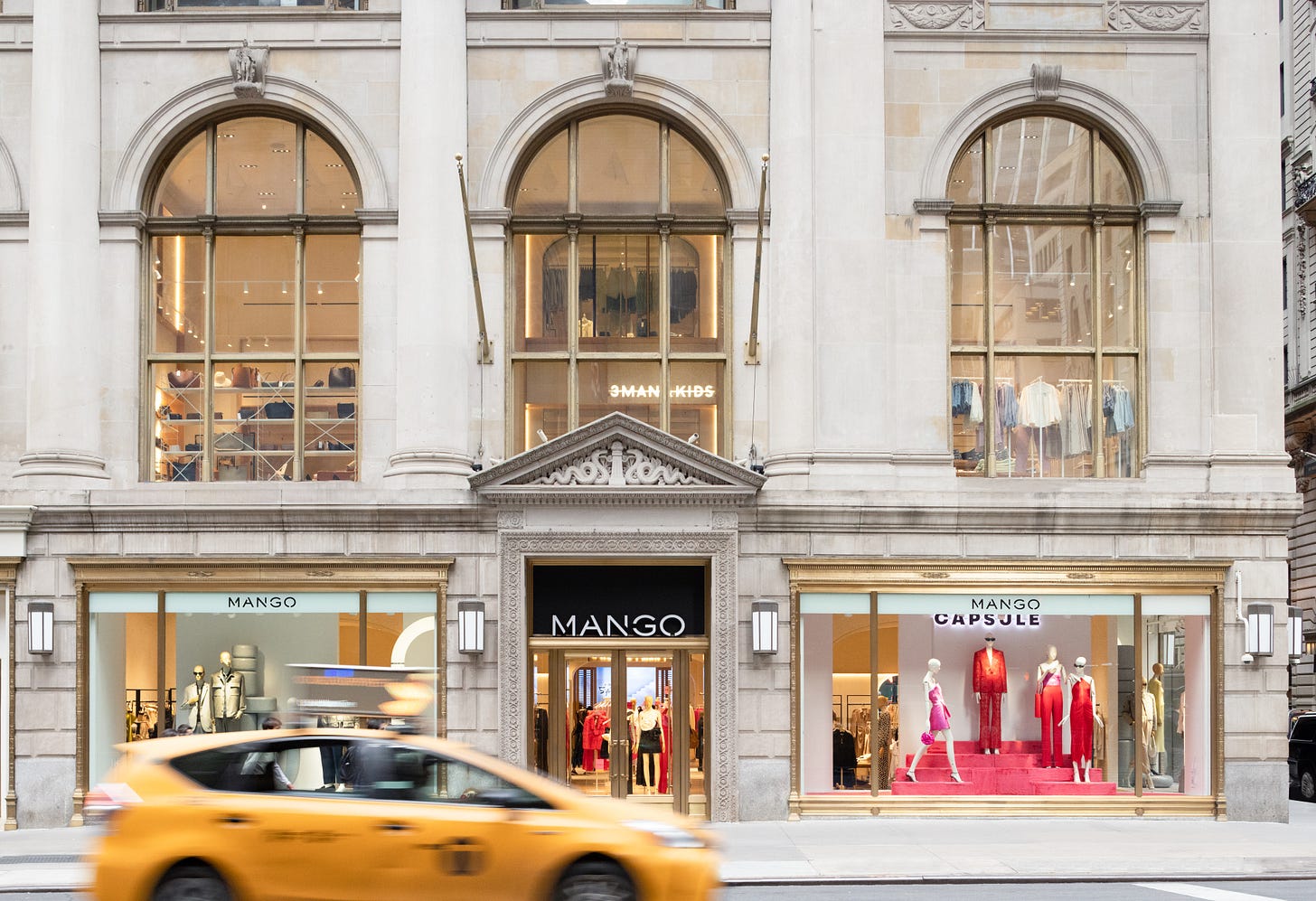This Week in Retail #54
From now until December 5th, This Week in Retail annual subscriptions are 20% off. Take advantage of this promotion while it lasts.
As a premium subscriber, here is what is included:
Premium Content: Full access to premium newsletters. Premium content takes a deeper look into some of the top headlines and trends in retail along with special bonus content.
Subscriber Chat: Chat and connect with some of the top minds in retail.
Insider Coverage: This Week in Retail will be your liaison to some of retail’s hottest industry events such as NRF’s Big Show, ShopTalk, CES and more.
Take advantage of our Black Friday special below to:
Hey Friends,
I hope you had an amazing Thanksgiving holiday and may this holiday season be filled with joy and resetting. For retail, this is it, the biggest time of the year.
One of my favorite contributors to my media diet, laura reilly, does a fantastic job of curating the full list of Black Friday extravaganza. Check out her article below. Something like over 100 sales, with links and promotions.
Apparently, somewhere between football, holiday “spirits” and family, consumers spent a record $6.1 billion online on Thanksgiving 2024, an 8.8% year-over-year (YoY) increase, surpassing last year’s growth of 5.5%. Mobile shopping drove the surge, accounting for 59.5% of online sales ($3.6 billion), a 10.5% YoY rise. Sales peaked between 8 p.m. and 10 p.m., according to Adobe Analytics, which tracks over 1 trillion visits to U.S. retail sites. Strong discounts in categories like electronics and apparel spurred impulse buying, marking a promising start to the holiday shopping season. Retailers hope the momentum continues through Black Friday and the compressed holiday season.
Mobile shopping accounts for approximately 40% of all e-commerce sales in the United States and 70% of online shopping globally. In 2024, mobile commerce is expected to drive over $431 billion in U.S. retail e-commerce sales and grow significantly in the coming years. Smartphones contribute to 77% of online shopping traffic and 65% of orders in the U.S. retail space.
Walmart recently announced a rollback of several diversity, equity, and inclusion (DEI) initiatives, citing a desire to create a more inclusive environment for all employees and customers. Changes include discontinuing the use of terms like “DEI” in communications, ceasing funding for the Center for Racial Equity, and withdrawing from the Human Rights Campaign Corporate Equality Index. These moves come amid increasing pressure from conservative activists and reflect a broader shift among some U.S. corporations away from expansive DEI programs. Walmart’s rollback of DEI initiatives includes ending funding for its Center for Racial Equity and removing terms like “DEI” and “LatinX” from corporate language. The company will also stop participating in the Human Rights Campaign Corporate Equality Index. Walmart stated these changes are aimed at fostering a sense of belonging for all employees and customers. While some view the move as part of a broader corporate shift under conservative pressure, Walmart maintains the changes were planned independently and align with its evolving goals.
RFID has been the talk of the industry, not just in retail but across the entire supply chain and now you are seeing concerted efforts to drive innovation…….The University of Memphis’ Automatic Identification Lab is leveraging RFID technology to improve logistics processes, focusing on item-level tracking during shipping. With equipment and software from Avery Dennison, the lab has installed an RFID system that reads tags on goods and parcels as they move through shipping stations. This system aims to address inefficiencies, such as the loss of 10% of rolling containers prior to RFID deployment, and demonstrates applications for tracking goods directly to customers, rather than traditional retail-to-store solutions.
Since the installation in September, students have been designing software using Avery Dennison’s atma.io platform, and companies like FedEx have tested the system for potential logistics applications. Key capabilities include verifying packed goods, ensuring correct packing, and automating shipment validation and tracking. RFID tags on individual items and cartons can link to digital orders, flag discrepancies, and optimize processes such as sorting, shipping, and returns.
The lab emphasizes real-world applications over theory, offering hands-on research opportunities for students and hosting companies seeking to integrate RFID into their operations. The project also explores AI integration to enhance efficiency, with potential for autonomous robots and data-driven decision-making. Avery Dennison views the initiative as pivotal for advancing e-commerce logistics, with broad applications in reducing costs, increasing accuracy, and improving customer experiences.
Meijer is expanding its partnership with EVgo to add up to 480 new fast-charging stalls for electric vehicles across its locations in Michigan, Illinois, Wisconsin, Indiana, Ohio, and Kentucky. This initiative aims to enhance access to public EV charging in the Midwest, supporting the growing adoption of electric vehicles. Currently, 24 charging stalls are operational at six Meijer stores in Michigan and Ohio, with plans to open 30 more stations by 2026 and another 30 by 2027.
This project aligns with Meijer’s broader sustainability goals, including reducing carbon emissions, and offers a convenient charging option for customers during routine grocery trips. EVgo President Dennis Kish highlighted that this partnership reflects a shared commitment to improving the charging experience for EV drivers throughout the region.
Additionally, Meijer has been recognized for its environmental efforts, such as surpassing its goal of cutting carbon emissions by 50% a year ahead of schedule.
Uniqlo is under fire in China after Tadashi Yanai, CEO of its parent company Fast Retailing, stated in a BBC interview that the brand does not source cotton from Xinjiang. This region has been at the center of forced labor allegations involving the Uyghur Muslim minority, which Beijing denies. Yanai’s comments triggered backlash on Chinese social media, with hashtags like “I support Xinjiang cotton” trending on Weibo and calls for a boycott.
Uniqlo is heavily reliant on the Chinese market both as a key consumer base and as a manufacturing hub. While Yanai refrained from elaborating further, likely to avoid political repercussions, this marks a shift from Uniqlo’s earlier neutral stance, which helped the brand avoid controversies that impacted rivals like H&M, Nike, and Adidas. Those brands faced boycotts or product removals after distancing themselves from Xinjiang cotton, often in response to U.S. laws requiring proof that imports were not tied to forced labor.
This incident underscores the risks global brands face in navigating sensitive geopolitical issues while balancing business interests in China and compliance with Western regulations.
Mango, the Spanish fashion brand, has successfully expanded its footprint in the U.S. by achieving its 2024 goal of 40 owned stores, with additional openings planned before year-end. This effort is part of its 4E 2024-2026 Strategic Plan, which includes a $70 million investment to bring the total U.S. store count to 65 by 2025. The expansion focuses on key regions such as the Sun Belt and Northeast, targeting cities like Bellevue, Washington, and Chicago, Illinois. Mango also plans to debut in new states, including Oregon and Louisiana, while strengthening logistics with a second facility near Los Angeles. The U.S., Mango’s leading online market, is poised to become one of its top three revenue-generating regions by 2026.
Sweaty Betty, the British activewear brand, is re-entering the U.S. market with a focus on direct-to-consumer channels. Following its 2022 acquisition by Wolverine Worldwide and a subsequent restructuring, the company aims to rebuild its presence in the U.S., leveraging its e-commerce platform and select retail partnerships. This comeback reflects renewed interest in international growth while aligning with global activewear trends. Further details about specific store openings or partnerships are expected to emerge as the brand refines its strategy .
Workers at a Philadelphia Whole Foods, owned by Amazon, have filed to unionize under the United Food and Commercial Workers (UFCW) International Union Local 1776. An “overwhelming majority” of employees supported the move, citing challenges in balancing health, safety, and customer satisfaction with the company’s profit-driven priorities. This effort marks a significant moment as it could lead to the first unionized Whole Foods store in the United States.
Whole Foods issued a statement acknowledging its employees’ rights to unionize but emphasized its commitment to its “open door policy” for addressing workforce needs. The UFCW stated that the workers seek better compensation and workplace protections, although specific demands have not yet been disclosed.
This development reflects growing labor momentum across the retail sector, particularly against Amazon, which has historically opposed union efforts. If successful, this could inspire similar union drives at other Whole Foods locations and further challenge Amazon’s labor practices, which are already under scrutiny globally.
That’s all folks……Have a great week.







